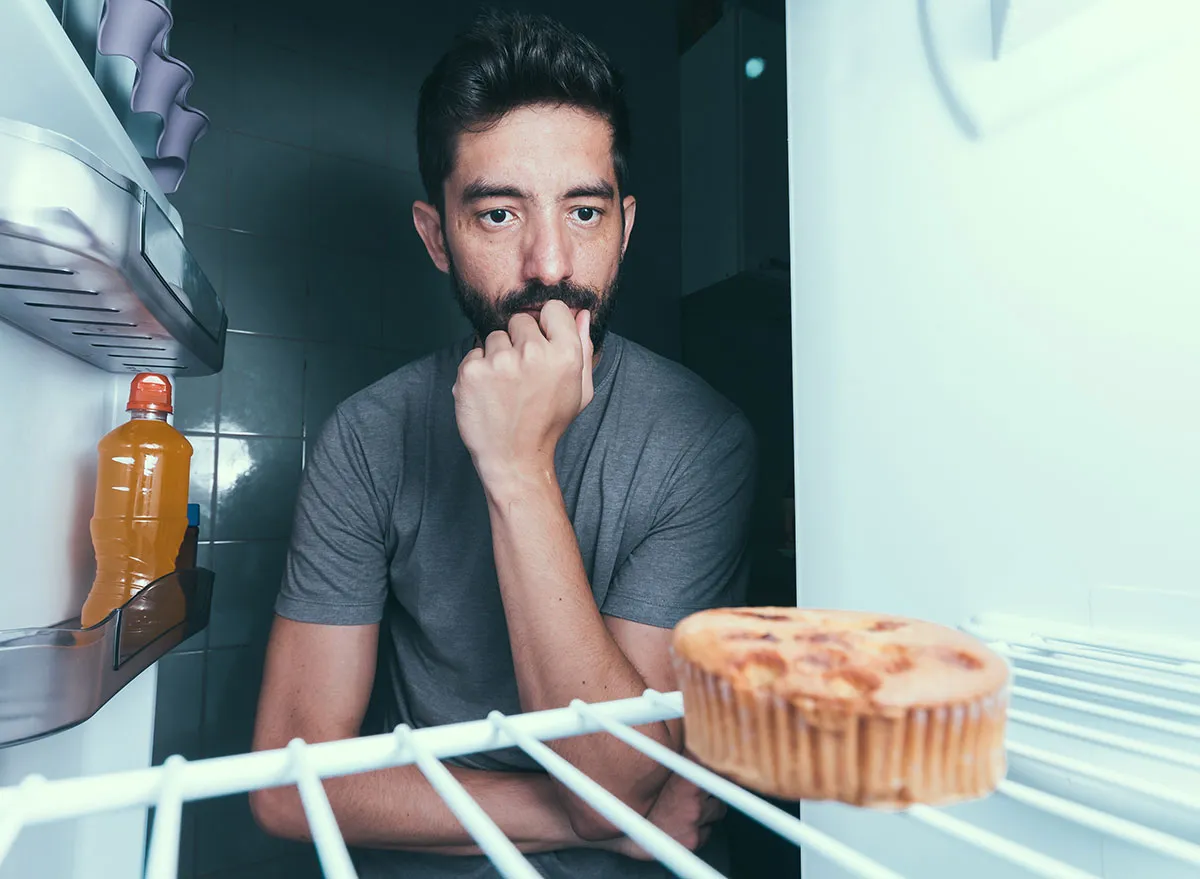Surprising Side Effects of Not Eating Enough Vegetables, Says Science

We get it—not everyone is a huge fan of vegetables. We bet you've heard time and time again that eating vegetables is good for your body's overall health and function, and can even help you to lose weight. But are those claims even true? Is it really that bad if you're not eating enough vegetables every day? Hate to break it to you, but yes. Vegetables are an important part of a healthy diet because they benefit your body mentally as well as physically.
Don't believe us? Here are some of the side effects you'll likely experience if you're not eating enough vegetables in your diet. Then, if you are looking for ways to incorporate more veggies into your meals, here's The Best Ways to Sneak Veggies Into Every Meal, Says Expert. Plus, be sure to bookmark our 22 Meals to Melt Belly Fat in 2022.
You may feel moody.

Did you know that your diet can directly affect your mood? It's called nutritional psychiatry. When you feed your body with all of the proper nutrients and vitamins it needs, that "fuel" can improve your brain function, which is directly connected to your mood, according to Harvard Health.
One study published by the journal Psychiatry Research also made a correlation between dietary patterns and depression risk, specifically when looking at low intake of fruits and vegetables. If your diet is high in processed meats, refined grains, sweets, high-fat dairy products, butter, potatoes, and high-fat gravy (and you're not eating enough vegetables) your risk of depression increases significantly.
Here are Popular Foods That Are Wrecking Your Mental Health, Say Experts.
You'll still feel hungry.

Fruits and vegetables are one of the best sources of fiber in your diet, as well as complex carbohydrates. Both of these nutrients are important for your body to feel full for a longer period of time. But not eating enough vegetables, your body will be deprived of this rich source of fiber and complex carbohydrates, causing you to feel hungry after. That feeling of hunger comes from quick blood sugar spikes and drops, which can happen if your diet is low in fiber. Fiber can help keep your blood sugar stable, which in return, won't make you feel as hungry soon after enjoying a meal.
Here are 9 Warning Signs You're Not Eating Enough Fiber.
You may have trouble in the bathroom.

Not only does fiber help you feel full (and can assist with weight loss), it's also an important nutrient for getting you to go to the bathroom regularly. Having a healthy amount of soluble and insoluble fiber in your diet will help with going to the bathroom, but if you're not eating enough vegetables, you may not be getting enough fiber in your diet to have normal bowel movements.
You won't be getting all the nutrients you need.

Sure, you could take a multivitamin to get all of your nutrients if you're not eating enough vegetables. But many experts back the claim that it's best to get all of those vitamins and minerals for your body from real, whole foods like fruits and vegetables. Vegetables are a great source of all kinds of nutrients that can be hard to get elsewhere like vitamins A, C, E, magnesium, zinc, phosphorus, folic acid, and much more. If you're not eating enough vegetables on a regular basis, your body could experience a deficiency in some of these nutrients.









